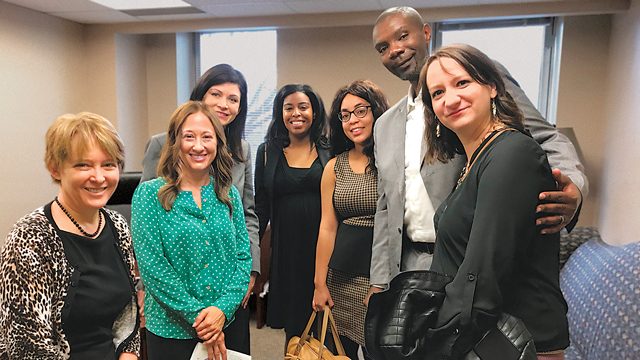Many of you are grandparents – and some of you are raising grandchildren at a time you thought your child-rearing duties would be over. Or, perhaps you are an aunt or uncle who has stepped in during a family crisis to take on the responsibility of raising nieces or nephews along with your own kids. An estimated 57,000 children in Virginia are living in these types of situations. It’s called kinship care.
This year, the General Assembly tried to make it easier for certain families to raise kids who are not their biological children, but are part of their extended families. The Kinship Guardianship Assistance Program, known as KinGAP, would allow relatives who take their family members’ children out of the foster care system to receive financial support and case management services when they become legal guardians. The program provides an option for teenagers, the age group most likely to be eligible, to exit the foster care system into a permanent living arrangement when adoption is not the best option. Importantly, it also helps children maintain relationships with family.
The program includes grandparents who often are raising their grandchildren while living on a fixed income without the necessary resources for school supplies and fees, additional food, and clothing. Many family members who take in relative children do not have adequate knowledge or resources to help these children heal from the trauma of abuse, neglect, or being separated from their parents.
Legislation and funding for KinGAP moved smoothly through Virginia’s legislative process with robust bipartisan support. Local senator Siobhan Dunnavant (R-Henrico) and long-time champion of foster care issues, Senator Barbara Favola (D-Arlington), fought for the bill in the Senate. Freshman delegate Emily Brewer (R-Suffolk) led the charge in the House, assisted by two chief co-patrons: local delegate Chris Peace (R-Hanover) and new delegate Karrie Delaney (D-Loudoun).
What is leading to such widespread support for a program that has failed to pass the General Assembly in previous sessions? A combination of legislative champions and passionate advocates seems to have made the difference. Peace has championed the needs of youth in the foster care system for several years, partly due to his experience as a guardian ad litem, a lawyer who speaks up for children’s interests in court.
A chorus of new delegates with interest in foster care and adoption has amplified his voice. Brewer has made her personal history front and center in her legislative priorities this session. She is one of several legislators who has been open about being adopted or growing up in foster care.
“Creating opportunities for children to thrive on a consistent basis is critical,” said Brewer. “The Kinship Guardianship Assistance Program will provide stability and permanency that will yield more successful outcomes for the future of many children in Virginia. Having been adopted, I was glad to sponsor legislation that will improve the lives of so many in a vital way.”
It is not just legislators’ personal stories that matter, though. Advocate Chloe Edwards, a young adult who now works for the nonprofit organization Connecting Hearts in Virginia, shared her personal experience with legislators on Kinship Advocacy Day at the General Assembly in January. At age fifteen, Edwards was placed with her grandparents, whom she did not know well at the time. She lived with them for three years. She is grateful that she had that opportunity to live with relatives in a permanent home for those years, but her grandparents were not equipped to handle some of her trauma due to years of emotional and sometimes physical abuse by her mother.
Edwards believes that KinGAP can help families like hers have the resources to take in relative children and help them access the counseling and other support services they need to heal. She wants other youth to “experience the opportunity for permanency,” rather than move from home to home, as often happens to youth in the foster care system.
While some people might be hesitant to share their stories with lawmakers, that wasn’t the case with Edwards. She believes the personal stories made a difference. “We’re the experts,” she said. “We’ve been through the process and know what we need and want [as youth in kinship care].”
While KinGAP will not help all families who are raising relative children, it is an important first step. Among other requirements, children must already be in the foster care system and placed with the relative for at least six months to be eligible for assistance through the program.
Just recognizing the needs of the thousands of children being raised by family members who are not their parents is significant, however. As Edwards said, “I sometimes feel like an outsider because there is so much focus on youth in foster care with non-family members.” That need is huge, with more than 4,500 children in the foster care system statewide. But the need is also great for the tens of thousands of children and youth who are living in kinship care arrangements. Thanks to lawmakers – and everyday people – who are sharing their own stories, those needs are closer to being met.




